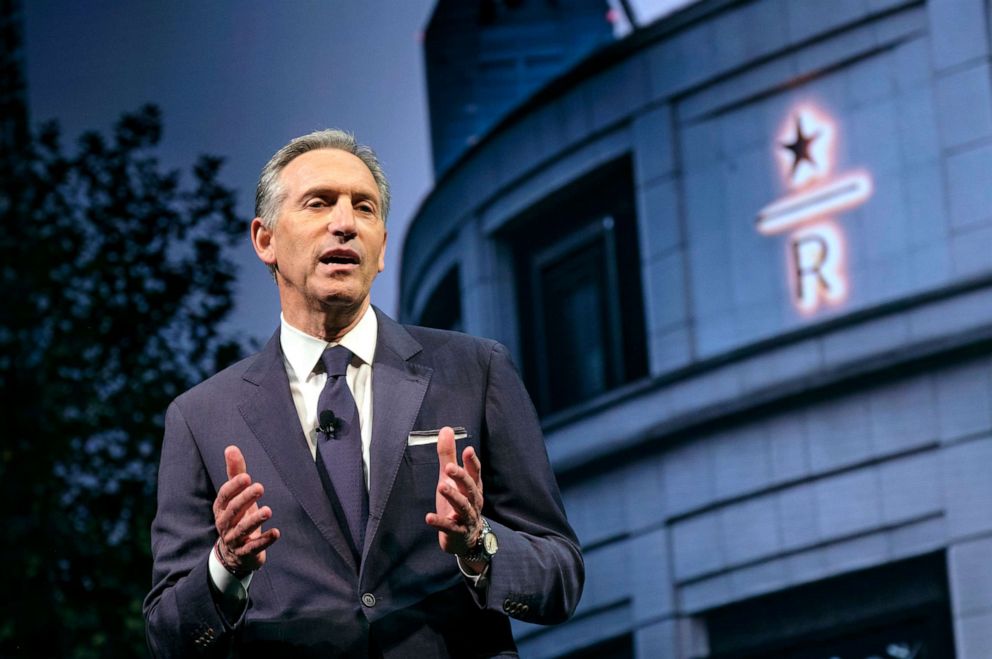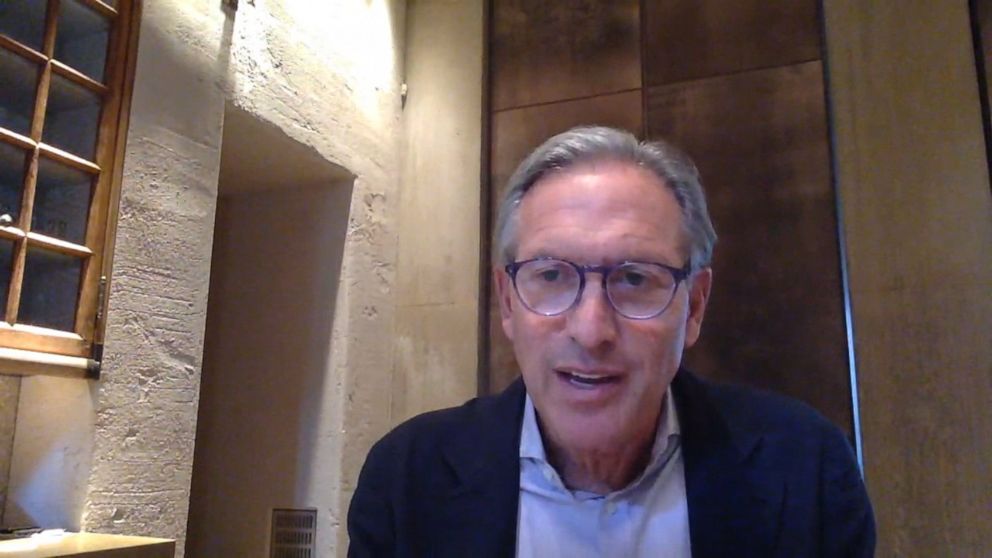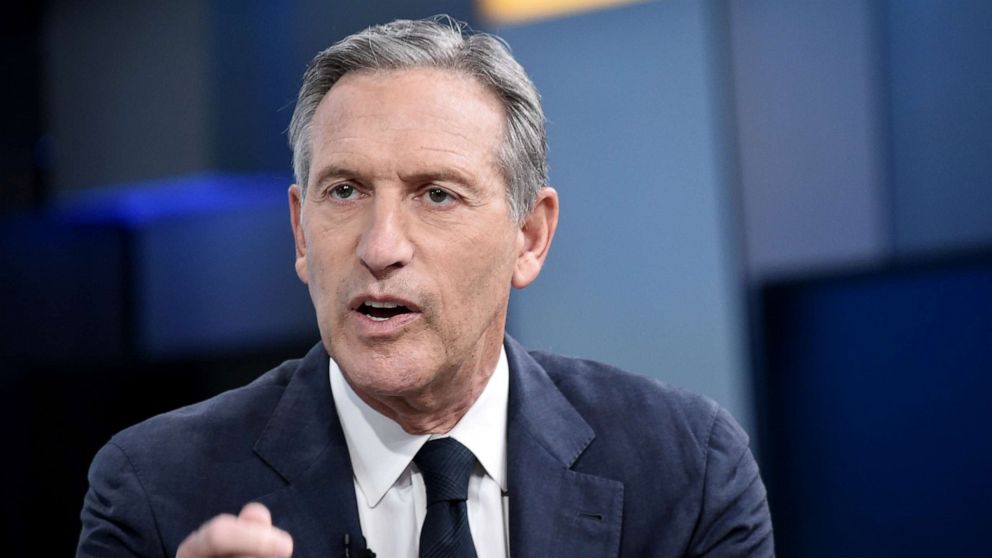Howard Schultz, fearing restaurant closures after COVID-19 pandemic, says more needs to be done
With hundreds of thousands of restaurants and their employees out of work due to the coronavirus pandemic, former Starbucks chairman and CEO Howard Schultz says that the federal government needs to do more to protect these businesses and everyone has a part to play.
"I think every opportunity that someone has to give themselves either in terms of service or money, or any kind of resource that you can lend to another person, another family, another business is critically important at this stage," Schultz told ABC News.
Schultz, who headed the wildly successful coffee chain for over two decades, said that the federal government's Payment Protection Plan for small businesses, while well-intended, "is a short-term Band-Aid on a much more severe problem."

The PPP initially provided $349 billion in funds intended to help small businesses retain their workforce for two months. Those funds, for which small business owners could apply for beginning April 3, ran out last week.
As the federal government prepares to inject another $310 billion into that fund, Schultz said it's likely that money will run out within weeks as well and that restaurant owners will need longer-term help as they navigate reopening. He noted that many businesses could not access the initial PPP funds, which are given through bank loans.
"The real problem [will be] the inability of small businesses and/or independent restaurants to manage and navigate through a post-COVID opening," Schultz said.
Schultz believes that many of the small businesses and independent restaurants in the U.S. "will permanently close as a result of not having an economic bridge to a vaccine," and said that there should be a third round of PPP funds totaling $1 trillion available for independent restaurants. He offered one way in which the federal government could provide the funds without giving away "free money."
"I know it's an extraordinary amount of money, but the way it could work is ... it could be a very low-interest loan over a long period of time in which the federal government is a backstop for the banks," Schultz said.
"And we're calling them businesses, [but] these are people," he added. "These are hard-working entrepreneurs. These are families who have put their life savings and their entire life in these businesses and they're gonna be wiped out to no fault of their own."
Schultz and his wife, Sheri Kersch Schultz, who have run the Schultz Family Foundation since 1996, have teamed up with other Seattle-based nonprofits to start The Plate Fund to provide one-time payments to restaurant workers in Seattle who recently lost their jobs due to the pandemic.
Schultz says the organization has already distributed more than 7,000 checks for $500.
"What we found with the plate fund, you know, we seeded it with millions of dollars from the family foundation, but we also got gifts and we're still getting donations of $5, $10 and $15," Schultz said. "So many people who received the $500 -- and this was so heartwarming -- gave back $5, $25 and $50 back to the fund for other people."
"This is an opportunity where we can all make a difference," he added. "It doesn't matter how small it is."

Beyond the financial challenges of reopening, Schultz said restaurant owners and even everyday people will be "entering a new world" in which "we're going to have to act in a much different way and be much more sensitive to the health and safety issues."
While Schultz said that philanthropists and nonprofits have a large role to help those in need during the coronavirus crisis, he also spoke about the responsibility of those in government to practice "servant leadership."
"This is a time for truth and transparency from government officials," Schultz said. "And to do everything we can to balance the need for the government to reopen itself and at the same time protect and preserve the integrity of safety and health of our citizens."
"All of that is very fragile. We all understand that," he added. "But we need the kind of leadership that literally is walking in the shoes of the American people."




